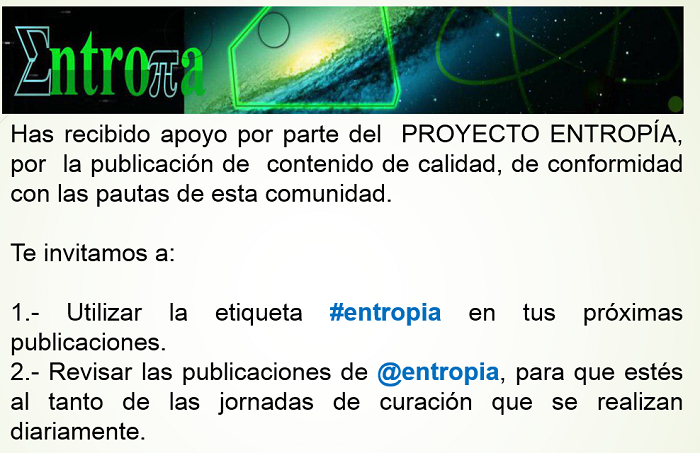

Ocurre sin notarlo, alguien hace cosas que nos lastiman, sin que necesariamente tengan que ver con nosotros y vamos poniendo nombre a cada herida.
Decimos que perdonamos, incluso realmente lo creemos, pero cualquier situación similar nos coloca en una posición defensiva, junto a un arsenal de armas y escudos, haciéndonos cada vez más reactivos... ¿O debo decir que es algo que sólo me pasa a mí? Puede ser.
It happens without noticing it, someone does things that hurt us, without necessarily having to do with us, and we put a name to each wound.
We say we forgive, we even really believe it, but any similar situation puts us in a defensive position, with an arsenal of weapons and shields, making us more and more reactive... Or should I say it's something that only happens to me? Maybe.

Resentir es volver a sentir algo que ya ocurrió.
Cualquiera puede enojarse en un momento dado, pero cuando pasa el tiempo y al recordarlo sigue en nosotros el mismo sentimiento de amargura, indignación, furia, dolor, tristeza, frustración y cualquier otro que nos haya generado esa situación, deja de ser algo natural, para convertirse en una carga emocional, que si no trabajamos adecuadamente, puede afectar nuestro bienestar, así como las buenas relaciones interpersonales.
To resent is to feel again something that has already happened.
Anyone can get angry at a given moment, but when time goes by and when we remember it, we still have the same feeling of bitterness, indignation, anger, pain, sadness, frustration and any other feeling that that situation has generated in us, it stops being something natural, and becomes an emotional burden, which if we do not work properly, can affect our wellbeing, as well as good interpersonal relationships.

En lo personal, soy débil frente al resentimiento, si alguien me hace algo una vez, puedo dejarlo pasar, no voy a decir que fácilmente, pero sí poniéndole voluntad.
Sin embargo, cuando son acciones reiterativas de la misma persona, me vuelvo intolerante, cada vez que sucede algo que me lastima, me siento más molesta, no tanto con esa persona, sino conmigo por permitirlo, por no saber defenderme apropiadamente.
Pero al menos sí soy capaz de verlo, no es algo que pase desapercibido para mí, entonces pienso, leo y busco la manera de salir de ese bucle.
Personally, I am weak in the face of resentment, if someone does something to me once, I can let it go, I will not say that easily, but putting will.
However, when they are repetitive actions of the same person, I become intolerant, every time something happens that hurts me, I feel more upset, not so much with that person, but with me for allowing it, for not knowing how to defend myself properly.
But at least I am able to see it, it is not something that goes unnoticed by me, so I think, I read and look for a way to get out of that loop.

Algo que me ayuda, es entender que lo que hace la otra persona no tiene que ver conmigo, sino con ella, cada quien actúa en concordancia con lo que es, con lo que lleva dentro. Alguien no puede darte flores, si no las tiene; te dará sólo lo que tiene. Eso me hace sentir compasión por los demás y me siento menos herida.
Si se trata de alguien cercano, intento comunicarle lo que siento, pero me ha sucedido, que en la mayoría de los casos, hablar no ayuda. Aún así, trabajo en el perdón por mi cuenta, porque es algo que puedo hacer sin involucrar a la otra persona.
Si es alguien que no tiene ningún parentesco o lazo afectivo conmigo, todo es mucho más sencillo, simplemente lo mantengo a raya, con un contacto mínimo, sólo para lo estrictamente necesario.
Lo aceptemos o no, hay personas que son dañinas para nosotros y aunque sean familia, lo mejor es tenerlas a distancia.
Something that helps me, is to understand that what the other person does has nothing to do with me, but with him, everyone acts in accordance with what he is, with what he has inside. Someone can't give you flowers if they don't have them; they will only give you what they have. That makes me feel compassion for others and I feel less hurt.
If it is someone close to me, I try to communicate what I feel, but it has happened to me, that in most cases, talking does not help. Still, I work on forgiveness on my own, because it is something I can do without involving the other person.
If it is someone who has no relationship or emotional ties with me, everything is much simpler, I simply keep it at bay, with minimal contact, only for what is strictly necessary.
Whether we accept it or not, there are people who are harmful to us and even if they are family, it is best to keep them at a distance.

It's over.
También me es útil entender que el resentimiento no afecta al otro, sólo a mi misma y es tan complejo que puede volverse en una carga muy pesada, que nadie desea llevar a cuestas y, aunque comienza sólo como una reacción natural ante una ofensa, si no logramos superarlo, se convierte en un veneno que contamina nuestra vida, impidiéndonos avanzar, manteniéndonos atados al pasado e impidiéndonos disfrutar el presente. Es entonces cuando el enojo se vuelve en nuestra contra.
Sin embargo, no tiene que ser así, a través de la empatía, la introspección y el perdón, podemos liberarnos de esa carga y encontrar la paz que tanto necesitamos.
It is also useful for me to understand that resentment does not affect others, only myself, and it is so complex that it can become a very heavy burden that no one wants to carry and, although it starts as a natural reaction to an offense, if we do not manage to overcome it, it becomes a poison that contaminates our life, preventing us from moving forward, keeping us tied to the past and preventing us from enjoying the present. That is when anger turns against us.
However, it doesn't have to be like that, through empathy, introspection and forgiveness, we can free ourselves from that burden and find the peace we need so much.

Esas líneas fueron inspiradas al leer la publicación: Normalizar el resentimiento / Normalizing resentment, de @rosahidalgo, a quien le agradezco darnos la oportunidad de compartir nuestras impresiones sobre este tema.
Me gustaría que mis estimadas @purrix y @lisfabian, a quienes les dejo por aquí un abrazo, echaran un vistazo a esta incitativa y se animaran a participar.
A todos ustedes, gracias por haberme acompañado en esta lectura.
These lines were inspired by reading the publication: Normalizar el resentimiento / Normalizing resentment, by @rosahidalgo, whom I thank for giving us the opportunity to share our impressions on this topic.
I would like my dear @purrix and @lisfabian, to whom I leave here a hug, to take a look at this initiative and encourage you to participate.
To all of you, thank you for joining me in this reading.


Thank you very much

Portada diseñada en Canva.
Fotografía de mi propiedad.
Emojis de Bitmoji.
Separadores hechos con Canva.
Fondos removidos con remove.bg.
Traducción cortesía de deepl.com.
Cover designed in Canva.
Photo of my property.
Emoticons from Bitmoji.
Dividers made with Canva.
Backgrounds removed with remove.bg.
Translation courtesy of deepl.com.
